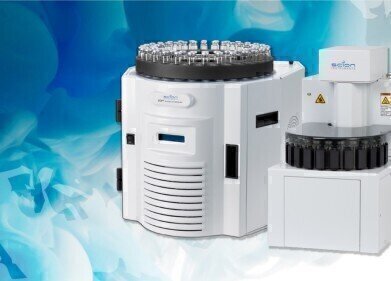Industrial News
Early-Stage Lung Cancer Detection by GC
Feb 15 2016
Lung cancer causes more deaths around the world than any other type of cancer. Many cancer deaths are avoidable by simply modifying our behaviour to avoid the cancer risk factors — smoking, drinking, lack of exercise and an unhealthy diet are all key cancer risk factors recognised by most people.
But sometimes — even when all the risk factors are reduced — cancer can develop. Being able to detect cancer early offers the best prognosis. However, by the time any symptoms are spotted, it can be too late and the cancer may have spread. Screening programmes are used for some cancers in the UK and people at risk of bowel, breast or cervical cancer can be checked for any signs of cancer.
With lung cancer being such a big killer, a cheap and simple-to-use early detection method would enable many more people to survive the disease. A recent development at the National Taiwan University offers a system that could one day find its way onto your GP’s desk — and chromatography is at its heart.
Using biological markers
Early detection of disease relies on finding biomarkers rather than the disease itself. Biomarkers are simply biological markers that are used as indicators of a particular state or disease. Commonly used biomarkers are cholesterol level or blood pressure, or an athlete might use heart rate to indicate how hard they are exercising. As medical knowledge and technology advances, biomarkers are becoming increasingly important as an early diagnosis tool for a wide range of conditions — including cancer.
Lung cancer’s symptoms — including: persistent cough and/or coughing up blood — usually go unnoticed until the disease has spread through the lungs or to other parts of the body. As with other types of cancer this makes treatment and recovery more difficult. Hence, lung cancer would benefit from early detection using biomarkers.
Just blow into this GC please
The use of biomarkers from our exhaled breath is not new — a sweet, acetone odour is used to indicate diabetes or a fish smell is associated with liver failure — so it is no surprise that biomarkers in our breath can be used to indicate lung cancer. Indeed, dogs have been trained to detect lung cancer by smelling our breath.
But in a doctor’s surgery, Fido might not be welcome — enter GC-MS. Gas chromatography – mass spectrometry is ideally suited to analysing the cocktail of volatile organic compounds present in our breath as discussed in the article, Volatile Organic Compound Determination in Health-related Research: A Review. However, traditional GC-MS is limited in a clinical setting due to the expense and expertise needed.
But now a portable micro gas chromatography system has been developed for detecting early stage lung cancer. The system is inexpensive and is sensitive enough to detect the VOCs that are associated with lung cancer on a patient’s breath — meaning that GPs can use it.
The team hope to develop the system and make a device that can plug into a smartphone.
Image from Wikimedia commons
Digital Edition
Chromatography Today - Buyers' Guide 2022
October 2023
In This Edition Modern & Practical Applications - Accelerating ADC Development with Mass Spectrometry - Implementing High-Resolution Ion Mobility into Peptide Mapping Workflows Chromatogr...
View all digital editions
Events
ACS National Meeting - Fall 2024
Aug 18 2024 Denver, CO, USA
Sep 04 2024 Chiba, Tokyo, Japan
Sep 04 2024 University of Warwick, Coventry, UK
Sep 10 2024 Rockville, MD, USA
Plastics Recycling World Expo Europe
Sep 11 2024 Brussels, Belgium














